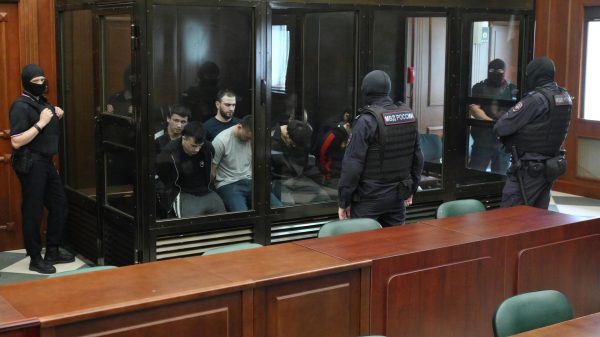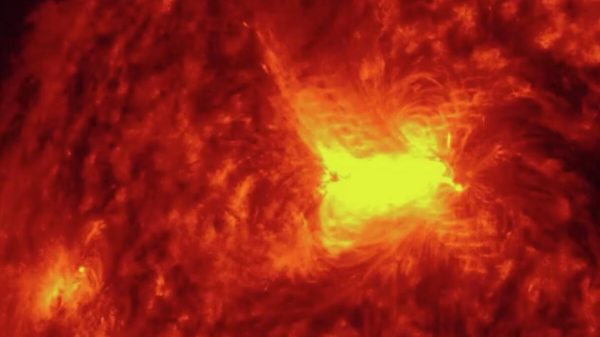 Jan Radukanou has always been closely associated with his daughter's career both on and off the court. Photo: Telegraph/David Rose < p>There were a lot of revealing details in this week's Tennis Podcast interview with IMG super agent Max Eisenbud, but one of them stuck in my head.
Jan Radukanou has always been closely associated with his daughter's career both on and off the court. Photo: Telegraph/David Rose < p>There were a lot of revealing details in this week's Tennis Podcast interview with IMG super agent Max Eisenbud, but one of them stuck in my head.
In the process of downplaying his client Emma's flippant approach Radukan. Eisenbud advised coaches not to give credit to Andrew Richardson, who held the ball at the 2021 US Open, for leading her to the title.
Tim Henman was also a big influence, he says. Just like Radukan's father Yan. According to Eisenbud, «it was her father who made a lot of plans for matches.»
Even though thousands of words have been written about Radukan's backstory over the last couple of years, it's still amazing. to me. I knew that Jan Raducanou had tight control over his daughter's career, but it's not like he was so eager to dive into the technical details of each individual match.
Nevertheless, when I consulted with John Morris — agent, I initially led Radukan to IMG when she was 15 years old — he found this detail quite plausible.
“This guy describes everything he does in such detail,” Morris said. “This has been his life since she was five or six years old. He learned to analyze the enemy. I wouldn't be surprised if Ian has some kind of database or system for everyone he's seen playing with.» Agent Max Eisenbud (left) considers Raducana one of his clients. Photo: Getty Images/Julian Finney
Like any teenage tennis sensation, Radukanou is the product of childhood decisions. However, she is unusual in that Jan, rather than an experienced tennis director, was running the show.
As Eisenbud points out, all the other prodigies developed their skills at the tennis academy. The Williams sisters trained with Rick McKee from the age of nine and ten, and his own first client, Maria Sharapova, worked with the late, mourned Nick Bollettieri. While the young Radukane was still attending school until she got her A-levels. (She graduated with an A in math and an A in economics.)
«After she won, I don't think her family got enough credit for how they handled her preparation for Wimbledon and the US Open,» Eisenbud told Tennis Podcast. “It was very brave of her parents to sacrifice the development of tennis for the sake of education. I can't remember the last Grand Slam champion who didn't leave school until he was 14, [and] I don't think there will ever be another.»
While the average junior star has a carefully structured tennis program complemented by some rudimentary attempt at academic homeschooling, Radukanu did the opposite. And in the absence of Macchi or Bollettieri, the family defied convention. In Emma's teenage years, Ian had a reputation for wanting to have a different coach for every single shot, just like a golfer might consult a putting specialist.
Now that Radukanu dropped out of the world's top 100 in a welter of injuries, the standard response was to criticize the instability of her environment. However, we must also recognize that this is nothing new. Jan Răducanu's approach to micromanagement has never wavered, even though it has produced varied results.
As Morris explains: “In my opinion, Ian has always been the project manager. He's been following Emma's entire development since day one, few people can say that about a Grand Slam champion. The Lawn Tennis Association definitely can't.
“Many considered him crazy, but he was diligent and meticulous in everything. So why should his plan have been different? I always felt that if you knew what you were talking about, everything would be all right. If you didn't, Ian and/or Emma would recognize you, because the apple doesn't fall far from the tree. So I was always ready and ready. I guess it's hard for some coaches to be in that position.”
Unsurprisingly, the coaching fraternity seems baffled and frustrated by Raducanus' apparently capricious decision-making. And it may be harder for Emma to hire support staff in the future, as Eisenbud himself admitted.
 Radukan is recovering from surgery on both wrists. Photo: Getty Images/Clive Brunskill
Radukan is recovering from surgery on both wrists. Photo: Getty Images/Clive Brunskill
However, he also used this interview to echo Jan Radukanu's industry-wide skepticism. «We don't sit in a sport where there are a lot of great coaches,» Eisenbud said. “Most great coaches don't want to travel 40 weeks a year and leave their family. You have a small pool of coaches who are willing to travel 40 weeks and take very little money, so they keep getting recycled.”
If there is one characteristic that all pattern-breaking athletes have in common, it is stubbornness. And that can be both a weakness and a strength. In Emma's case, there are likely trainers who have more to offer (the recently departed Sebastian Sachs is one possible example) than Ian is willing to admit.
That said, don't expect Raducanus to switch positions. . . As Eisenbud concluded, “People just have to accept that she [changes coach every four or five months] is going to do this. It will probably stay that way for the rest of her career.”






















































Свежие комментарии